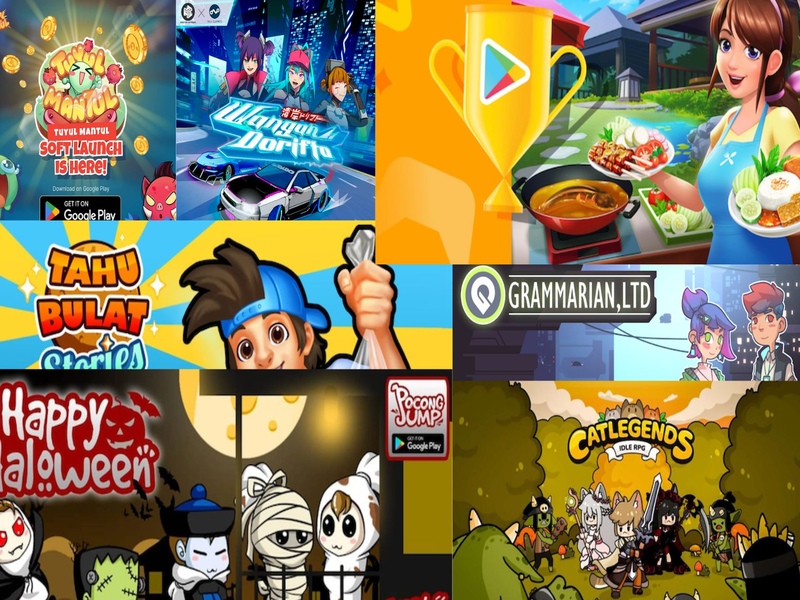
Tech by Android – Mobile gaming continues to evolve rapidly, yet one trend holds steady: the demand for quality offline games. While online multiplayer dominates headlines, offline titles remain essential. They offer fun without relying on strong connections. Travelers, commuters, and players with limited data still seek them out. In 2025, developers have pushed boundaries further. Offline games now match online ones in depth and polish. Graphics impress, mechanics feel fresh, and stories engage fully. Whether for short bursts or long sessions, these games deliver. And as distractions grow, playing offline becomes a way to focus. So, here are top choices this year.
“Ember Quest” leads the pack with its hand-painted worlds and rich puzzle adventure. Set in a land where sound has vanished, players guide a mute hero through echoing temples. No Wi-Fi required, yet visuals shine. Furthermore, clever riddles adapt based on your progress. Controls feel fluid. Sound design, though minimal, enhances immersion. The game includes 20+ hours of content. It saves locally and loads quickly. While it avoids jump scares, tension builds through atmosphere. Many describe it as a “zen but eerie” journey. Even without internet, the journey captivates. You’ll lose track of time while solving its layered mysteries.
“Read More:Kanye West Concert in South Korea Canceled After Release of Song Heil Hitler ”
Arcade racing returns in style with “Drift Legion.” Inspired by 90s classics, this game mixes pixel art with hyper-smooth mechanics. Unlike most racers, it needs no login. Just pick a car and burn rubber. Additionally, its engine allows buttery performance on low-end phones. Drift combos unlock custom upgrades. Players race through cities, canyons, and night highways. Best of all, no ads interrupt gameplay. Furthermore, the soundtrack slaps with synth and bass. While you can’t race friends live, AI rivals adjust based on skill. Those nostalgic for old-school racing will love it. Fast, sharp, and fun—even in airplane mode.
Turn-based strategy rarely works well on mobile—but “Mindfold” proves otherwise. The grid-based gameplay recalls chess, but each unit has future-predicting powers. No network needed. Just you, your mind, and shifting battlefields. Additionally, the AI learns over time. Tactics matter. Terrain influences success. Players build squads from 40+ unique operators. Victory depends on foresight, not grinding. Moreover, it includes a branching campaign set in a fractured utopia. Minimal menus keep things intuitive. Battery usage remains light despite the deep systems. And most importantly, there’s no loot box or microtransaction. A complete tactical experience, built for brains—not broadband.
“Read About: Tech’s Most Valuable Asset: Understanding the Global Chip War”
“Hollow Tune” redefines rhythm games. Instead of bright visuals and pop tracks, it offers moody piano melodies and shifting silhouettes. You tap, swipe, and hold as scenes unfold. Each stage tells a story. Although entirely offline, the game reacts to your choices. Miss too many notes? The visuals dim further. Hit a streak? Color returns. It’s subtle, haunting, and rewarding. Best played with headphones. Additionally, it auto-adjusts to left- or right-handed players. You can even compose your own levels. The game’s atmosphere attracts artists and gamers alike. It doesn’t shout—it whispers. Yet it leaves a lasting impression.
Another hit from indie developers, “Apex Drift” combines car survival with rogue-like mechanics. Each drive feels different. One run might feature rain and rockslides. Another might bring sudden fog or road collapse. Players earn upgrades that persist across deaths. The deeper you drive, the harder it gets. Controls rely on tilt or touch. Either feels precise. No two canyons look the same, thanks to procedural generation. The game requires no account or sync. Moreover, it supports older phones smoothly. Crashes are thrilling—not punishing. Perfect for quick play or deep progression. Offline, it runs without hiccups. And every escape feels earned.
A strange but delightful concept: cook gourmet meals inside a fallout bunker. “Bunker Chef” merges time management with absurd humor. Offline, it shines with snappy performance. You juggle ingredients, maintain morale, and dodge occasional mutant rats. Recipes include spicy tarantula stew or neon jelly toast. Though silly, mechanics are tight. Each level introduces a twist. Moreover, voice-acted customers demand speed and style. As you progress, new bunkers and ovens unlock. While it entertains, it subtly critiques survival culture. Hidden behind laughter are surprisingly sharp messages. A game that makes you laugh and think—without needing online access.
“Ironroot” is a dungeon crawler with old-school soul and new-gen polish. Randomized maps, rare loot, and brutal bosses await. Despite being offline, it supports deep progression. You craft potions, upgrade armor, and decipher lore from ancient scrolls. Combat is tactile and snappy. You dodge, block, and strike—not just tap. Moreover, death isn’t failure. Each run unlocks clues and artifacts. No ads. No online check-ins. Just raw adventure. The pixel art pays homage to SNES classics. Yet the lighting and sound feel modern. Hardcore RPG fans will adore it. Even casuals will find reasons to return. Gritty, immersive, and fiercely fair.
Despite 5G, cloud gaming, and global Wi-Fi improvements, offline games still offer unique benefits. First, they ensure freedom—no login, no lag, no ads. Second, they respect the player’s attention. No pop-ups, no distractions. Just gameplay. Third, they function in all environments—mountains, planes, or power outages. And finally, they remind us that fun doesn’t need servers. Many players blend online and offline titles. But when quiet matters, or focus is key, these games rise above. Developers keep raising the bar. And in 2025, playing offline isn’t retro. It’s smart. It’s personal. And it’s more immersive than ever.